Richard YeowartArena Television
Richard Yeowart started out in the OB business by building his own truck.
'When I left college I bought a U-Matic ENG kit and built a two-machine edit suite,' he recalls.
'I was doing mainly corporate work with that when a friend working at Sky News introduced me to the sports team - they wanted coverage of boxing and greyhound racing so I converted an old seven-tonne bread van into an OB unit.'
Today Yeowart is group managing director of Arena Television, running six OB trucks, three of which are HD, and three VT vans, with another HD vehicle due on the road next spring. The fleet grew out of LWT's OB truck stock, which Yeowart ran on a partnership basis and then bought outright. 'We went from one vehicle to 12 overnight,' he says.
Arena's fleet and client base have changed since those days and among its new contracts is Setanta Sports' coverage of Premier League matches, a deal Yeowart says the company was able to clinch because its HD trucks were already built, although Setanta is not transmitting in HD at the moment.
'We were already quite busy,' says Yeowart. 'The new truck will be key to accommodating both Setanta and our existing clients, which is a nice problem to have. The market is changing, with fewer players and more groups, but there is enough work to go around and an increasing amount in HD.'
Arena TV is an independent company owned by Yeowart, based at Redhill Aerodrome in Surrey. This is to accommodate both the trucks and an associated company, Arena Aviation, which supplies helicopters for BBC and Sky news coverage. This aerial capability also provides a useful mix with OBs on the ground. 'It gives us a unique aspect to our work,' says Yeowart.
His advice to people wanting to work in OBs is to get on the right course at college and consider less obvious jobs. 'It's probably easier for us to find camera assistants than people with skills such as sound and VT, as more people want to operate cameras,' he says.
Either way the staff get the opportunity to work on events such as Live Earth, which Yeowart picks as his most memorable OB. 'We had 40 cameras on site and it was great to have been a part of that.' Another highlight was covering the Children's Party at the Palace for the Queen's 80th birthday. 'I thought we'd have to park round the back but I was astounded to see our big trucks right in front of the palace, guarded by policemen with machine guns,' says Yeowart.
Mark TugwellBBC OB
We've all had embarrassing moments that we'd rather forget: Mark Tugwell's happened on live television. 'I was working on the OB covering the opening of Tate Liverpool in 1988 and accidentally stood in the official line-up live on air,' he recalls. 'Everybody was being introduced but they didn't know who I was.'
Tugwell has fonder memories of another OB that year, the concert at Wembley to celebrate Nelson Mandela's 70th birthday, which he says is the most memorable he has worked on due to its scale and significance.
Director of BBC Outside Broadcasts since 2000, Tugwell began his broadcasting career in Wales in 1983. BBC Wales was recruiting staff to work on new programming for commercial Welsh language channel S4C; Tugwell applied, got the job and did three years' training at Wood Norton. While at BBC Wales he did his share of studio work, but enjoyed OBs more. He acknowledges that he did work on coverage of what appear to be stereo-typically Welsh events, including a lot of eisteddfods and the national sporting passion. 'Virtually every Saturday I was at a rugby match,' he says.
Tugwell left Wales in 1996 and in his current job with BBC OBs concentrates mostly on management, although he still sometimes gets out on the road.
'The crews think I should occasionally put on a pair of gloves and pull some cables,' he says.
The sale of BBC Resources is the big issue in OBs at the moment, but Tugwell maintains it's 'business as usual'. He adds: 'The other significant change is HD. There are more channels to satisfy and some clients feel they don't have to pay extra for HD even though equipment costs more. With the amount of OB events on TV now we have to find ways to do things in a different and cost-effective way. BBC OBs can do that because we specialise in large, complex productions, often with specialised cameras. What we have to avoid is pushing the staff too hard.'
Paul ScivillTelevideo Group
For producers with a London-centric view, Sheffield may seem a long way away. But Televideo managing director Paul Scivill maintains the group's Sheffield location has real benefits.
'We're almost in the middle of the country,' he explains. ' London is around 150 miles away and it's about 200 to Scotland. We're better placed [for an OB event in Scotland ] than a London company which faces an 800-mile round trip.'
To prove his point most of Televideo's work right now is in London, the north-east and Scotland: a mix of sport, entertainment and corporate presentations. 'We're very busy and our turnover is increasing again this year,' says Scivill.
The group has six trucks on the road, including one HD unit, with a second coming into service during August. 'HD is a natural progression in broadcast technology, in the same way as one-inch gave way to Betacam. It will become the norm,' says Scivill. 'It means we can continue to improve the quality of the images we produce.'
There's not been a great deal of work in HD, Scivill acknowledges, but the technology has produced some good quality SD productions. The market as a whole has grown, he observes, with a great many sports events to cover. 'It all seems buoyant at the moment and there are enough units to cover the work.'
Televideo, a mid-sized player, started out in 1976 as a studio and post-production facility, working mainly on corporate productions. By the end of the 1980s it had moved into OBs. The group still offers studio and post-production facilities via a subsidiary but OBs, including the Tour de France prologue now comprise the majority of its workload.
As OBs are demanding in Scivill's view, he particularly admires big events such as the World Cup. He is especially proud of Televideo's coverage of a Champions League final at Old Trafford for an Italian broadcaster which couldn't get its own truck to England in time.
Rob Hollier021 Television
Rob Hollier has witnessed changes to the OB market and its technology first hand. He started in OBs as a rigger with ATV's OB division and saw that evolve into 021 Television, the company he now runs as managing director.
'In the ATV days covering a football match with three cameras was normal practice,' he says. 'After 021 was formed in 1990 we built the first component truck and covered matches for Sky and ITV with 14 cameras. Now you can have anything up to 20 cameras and there's surround sound as well, so the trucks have to provide a lot more facilities.'
In recent years he thinks the market has become a lot more competitive: 'OBs is an aggressive business with everybody tendering for others' contracts. Right now there is enough work for all the companies. There's a lot of sport with more work from Sky and others.'
OB companies changing hands is another trend of which 021 has direct experience following its purchase from ITV by Gravity Media Group. The new owner invested heavily in the building of new facilities, including two HD trucks.
'Anyone building a new truck today will build it in HD,' says Hollier, 'and that requires a lot of investment. I don't think we've hit saturation point with HD trucks yet but as more come onto the market there could be less work to go around.'
021 continues to work for ITV on productions such as Dancing on Ice,while pitching for other contracts. 'You need a good array of clients,' Hollier explains. 'Setanta has arrived but it's too early to say how that will change things.'
Hollier prefers working on big football matches and does not like being stuck in a studio: 'You've got to be on site to make sure the client is happy and to see how the crew is.'
021's best OBs, Hollier says, have been World Cups or European tournaments. In all, even with the long hours and hard work, he concludes that 'OBs are a wonderful way to earn a living'.


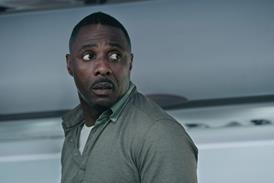




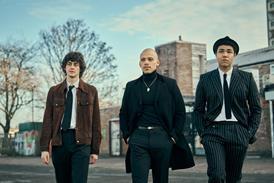
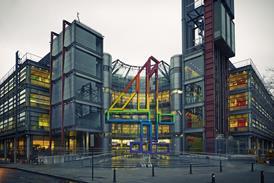
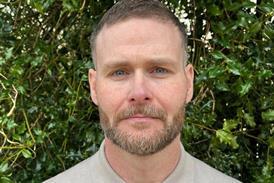
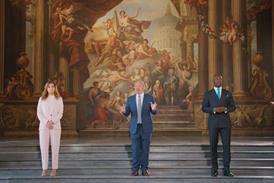
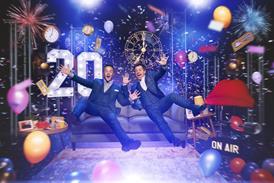
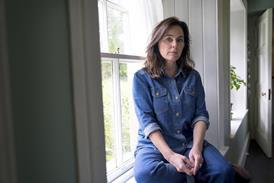
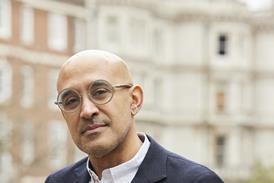
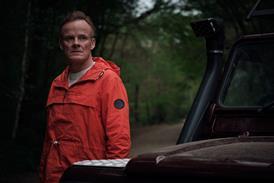
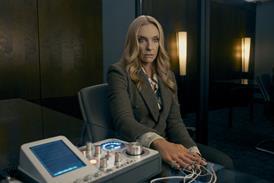
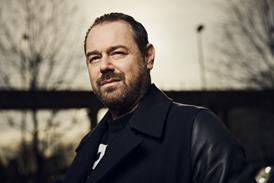
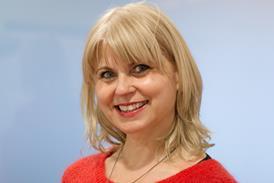
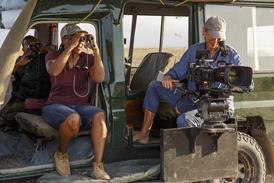
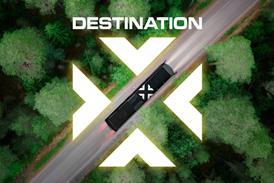
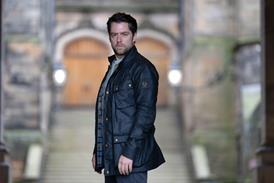
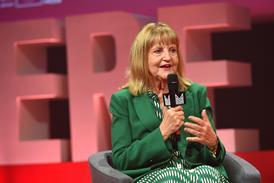



No comments yet